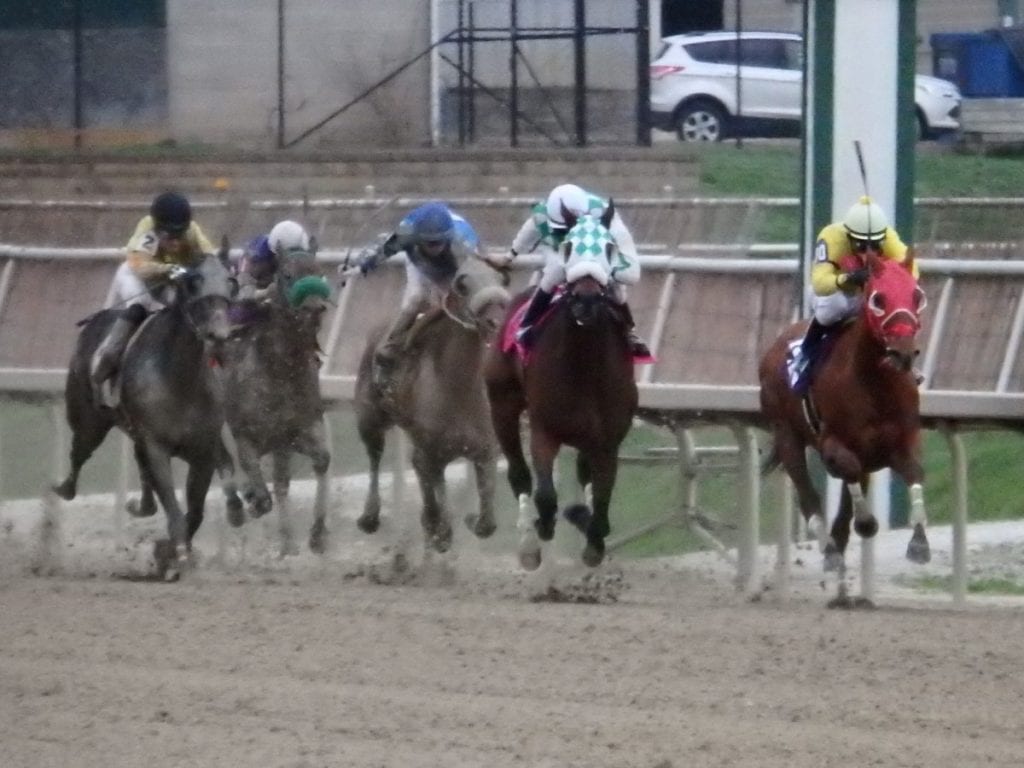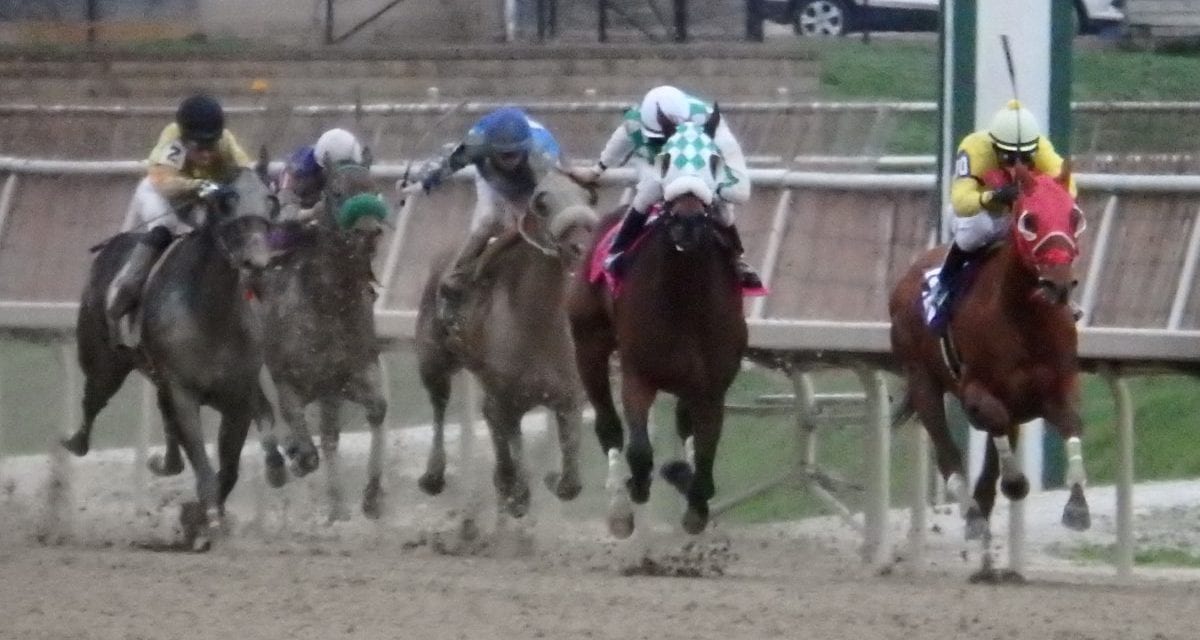
Racing at Laurel Park. Photo by The Racing Biz.
by Frank Vespe
Trainers whose horses are claimed must provide the state veterinarian a record of all joint injections the horse has received in the 30 days prior to the claim, according to a new policy adopted effective January 1 by the Maryland Jockey Club.
The information must be provided within 72 hours and will be shared by the state vet with the new trainer.
“Report will include joint(s) involved, medication used (Depo-Medrol, Hyaluronic acid, etc.) and the dose used,” according to the track’s overnight.
The new rule, said Maryland Jockey Club president and general manager Sal Sinatra in a January 2 interview, mirrors one already in place at Gulfstream Park, the MJC’s corporate sibling within the Stronach Group. The company is in the midst of trying to bring all of its properties — which also include Santa Anita Park, Golden Gate Fields, and Portland Meadows — under the same umbrella in terms of policies and wagering formats.
“Gulfstream started it,” Sinatra said. “It seemed to work very well there, so Tim [Ritvo, the Stronach Group’s COO] suggested trying it here.”
Sinatra said that the policy is designed to safeguard the health and welfare of horses.
“It’s been the biggest thing when horses wind up in the retirement circle,” Sinatra said. “Most of the things you hear about are horses being young and arthritic in their joints, and I think it’s just because people are trying to relieve pressure on these horses and they’re being overdone.”
Sinatra said that the company believes the issue is particularly acute for claiming horses that get passed around from trainer to trainer, which is why it connected the rule to claims specifically, rather than, for example, requiring all trainers to register all injections.
“It’s not by one trainer on one horse over time, it’s the horses that are being traded around,” he explained. “Everyone gets a new horse, and they want to do everything they can for the horse. They don’t know what the guy did for the horse or when they did it.”
Under the new regime, he said, trainers will know which horses recently received joint treatments and, thus, will be able to treat them more lightly.
“It’s just basically if a horse needs an injection in their joint for some relief, and somebody just did it a week, 10 days ago, they know they have time before they have to look at it, rather than overdoing it,” he said.
A similar, though more comprehensive, policy in New York has been a “qualified success,” according to published reports.
Because this will be a house rule, rather than a Commission regulation, the enforcement mechanism will be somewhat more informal.
“Basically, an owner doesn’t want to do it, we’re not going to take their entries,” Sinatra said. “If a vet doesn’t want to do it, he doesn’t need to work on my backstretch.”
Regardless of what they show, the records will not affect the validity of claims.
Sinatra said that the response from horsemen has been “a mixed bag.”








I like the new rule very much, for the reasons outlined in the article.